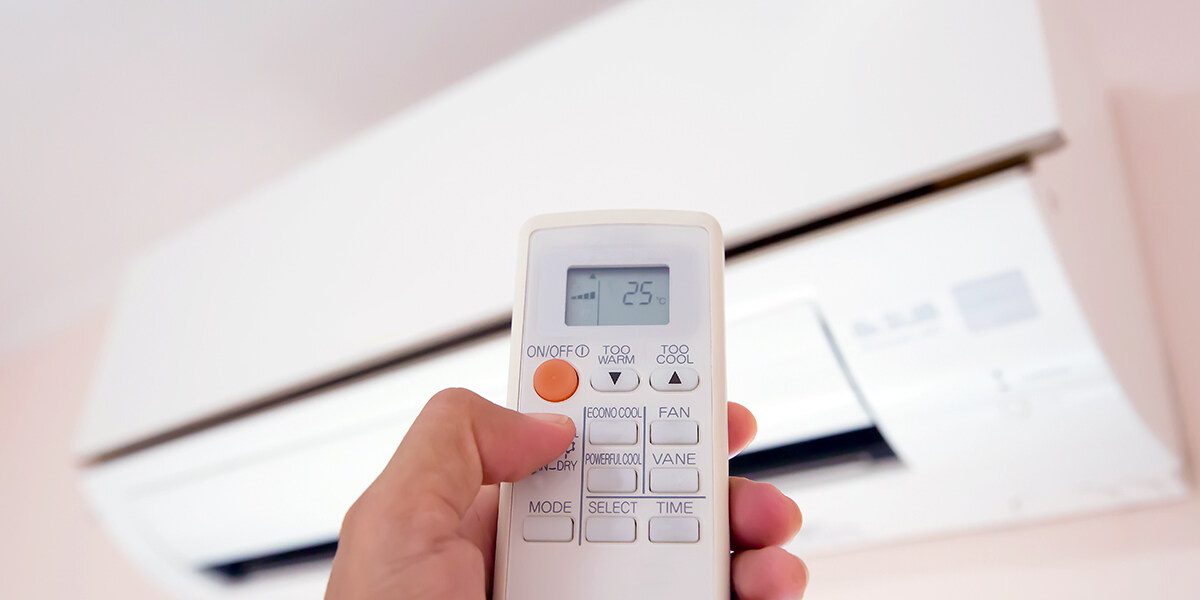
When you need air conditioning repair or replacement services, call Cooper’s Plumbing & Air for fast and efficient help from local experts.
Air conditioners should help manage your property’s humidity levels while ensuring the indoors stays near or at your desired temperature setting. However, air conditioners, like any other utility or appliance, can wear down over time, requiring repairs. For example, you may have an air conditioner sensor problem but may not know it if you don’t know the signs.
As an industry-leading heating and air company in Tallahassee, FL, Cooper’s Plumbing & Air helps home and business owners manage their AC units. Read more to learn how to identify the signs of a faulty AC sensor.
What an AC Sensor Does
AC sensors accurately measure the temperature of the air and humidity levels in each room. Air conditioners usually have several sensors in different locations:
- On the return bend
- On the suction line
- On the discharge side
- Close to the evaporator coil
The sensor closest to the evaporator coil checks the current air temperature and compares it with incoming air. If the incoming air temperature doesn’t match the temperature set on the thermostat, the unit turns on the compressor and cools the room. Generally, a room’s temperature decreases by one degree Fahrenheit every 18 minutes (10 degrees every three hours).
Each sensor gathers information for your AC system to function and is instrumental in the operation of your thermostat. They help the unit follow the directions of your control panel and automate your cooling system. An air conditioner sensor problem would prevent the system from turning off when the room reaches your desired temperature.
Signs of a Failing Sensor
As noted, without the sensor, your AC would not be able to register the temperature of your rooms. Therefore, you can expect sensor issues to make themselves known via poor temperature regulation along with other problems.
Short Cycling
One common AC problem includes when an AC unit continuously turns on and off in short cycles of cooling air. A usual cooling cycle at the desired temperature lasts about 10 minutes before resting for another 10. However, a short-cycling AC will go through the cooling and stop cycles in under 10 minutes.
A faulty sensor may falsely note that the room temperature does not match the desired temperature and turn the system on. However, it may correct itself and turn the system back off. Other times, a faulty electrical connection to the sensor may cause it to fail and turn back on consistently.
Frigid Interior
As mentioned, an AC without a temperature sensor cannot turn off. If you have your thermostat on “Auto,” your system may run continuously without turning off at any point. You may have a sensor, but the unit doesn’t know when to turn off the compressor since it isn’t working.
The room may become uncomfortable from the cold air and the continual function of your AC. If you notice that the only way the air conditioner stops is if you turn it to “Off,” you should immediately contact one of our HVAC specialists.
Unnaturally High Bills
You may have a general idea of how much your energy bill should cost per month. Of course, Florida’s sunny and humid climate often necessitates regular AC function, which may present itself as a high bill. However, note if your energy bills are higher than usual.
Both short cycling and constant cooling increase the energy your property consumes. Regardless, you end up footing the bill. These issues can be a big deal, sometimes costing hundreds of dollars in a single billing cycle.
Typical Sensor Defects That We Fix
When our expert HVAC technicians come to fix an air conditioner sensor problem, we often encounter one of two issues. The first comes from a faulty control board, while the other usually relates to accidental sensor displacement.
You control your thermostat, which tells the unit what temperature you want the rooms to be. However, if there is a technical issue with the thermostat, the signals from the sensor will not process correctly. So, the sensors in the system may work fine, but the thermostat may cause your AC to short cycle or stay activated longer than necessary.
As far as displacement goes, an AC can rumble or move as the components work. Whether from the natural movement of the unit or a previous installation issue, the sensor can fall or slip out of place. The unit and thermostat cannot receive the signals from the sensor if it doesn’t fit in correctly, also causing the issues mentioned before.
What You Can Do Before Calling
Sometimes, you may not need a full repair, especially if the sensor has simply slipped out of place. If you have the confidence to check, you could put your sensor back where it should be:
- Turn off the air conditioner and the power to the unit from the main electrical panel. Leaving either one on could cause severe issues, like electrocution or skin damage.
- After ensuring the power is off, access the evaporator coil inside the indoor AC unit. The sensor should be near the coils. If you notice that it isn’t plugged in properly or bends slightly, you can carefully put it back in place.
- Lastly, turn the power back on and test the system by setting it to a temperature close to the room and seeing how it functions.
If the issue persists or the sensor bends away from the coil, you may need a sensor replacement, or another problem may hinder your AC system.
Rely on Your HVAC Experts
An air conditioner sensor problem, AC short cycling, and other AC issues can disrupt your comfort and wallet. Cooper’s Plumbing & Air has been helping Tallahassee home and business owners manage their HVAC units for over 20 years. Call our team at 866-464-7132 for a full system diagnosis to keep you from wasting more air, energy, and money today. Learn more now.
